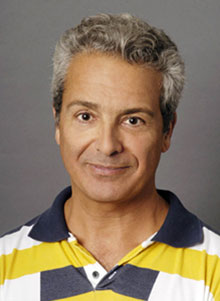
Jonathan Lee
|
When Jonathan Lee rose from the crowd at the Equality Maine Awards banquet last March to pledge $5000 to the pro-gay marriage effort, it's likely that many people in the room turned their heads in curiosity. Lee had been a powerhouse in the GLBT rights community throughout the 1990s, first, as a fundraiser who got Maine Won't Discriminate off the ground in 1994, and then as the founder and executive director of the Maine SpeakOut Project, a statewide speaker's bureau aimed at educating people about sexual and gender orientations.
Both were hugely successful. Maine Won't Discriminate, in its premier effort, thwarted an attempt to pass anti-gay legislation in 1995, and anchored a legitimate brand for future ballot initiatives. Meanwhile, SpeakOut became well-known for its green light policy of letting Mainers talk openly about issues close to the GLBT community in an effort to change the climate of opinion in the state.
Lee, son of business giant and philanthropist Shep Lee, all but disappeared from Maine in 2002 when he decided to move to Brazil to learn Portuguese, and from there, in 2003, to Manhattan to begin work on a project that had already been decades in the making.
But Lee is back, in a big way.
On October 19, Lee will premiere his film Paul Goodman Changed My Life at the crème de la crème of indie film festivals, the Film Forum in New York City. He produced and directed the first-ever documentary about Goodman, the late queer social critic, poet, and philosopher of education. The project took nearly ten years and includes interviews with Goodman's friends, family and peers. The film, says Lee, was inspired when he was a 17-year-old high school student, grappling with Vietnam and the social injustices of the day. While in school, a speaker at a teach-in recommended that he read Goodman's Growing Up Absurd, a book that changed Lee's life.
"The book spoke to me, and opened all sorts of intellectual and political doors for me. I identified with Goodman, and, in some ways, started following him around," says Lee. But the "following around" was figurative as his new intellectual hero was not long for this world. At the age of 62, Goodman died in 1972.
Lee never shook his fascination with Goodman and, in the late '80s, fired off a lengthy letter to well-known social critic Christopher Lasch about the impact Goodman had on his life, and why he should be immortalized in some way. After ten pages of writing, says Lee, the letter looked and felt like a proposal. It was also received as a proposal, and Lasch encouraged Lee to pursue a tome on his hero. After various interactions, serendipitous meetings, and immersing himself in the fine art of documentary film, Lee decided against a book and officially started a film project in 2003.
"Through the project, I learned more and more about Goodman. How he was an out bisexual in '40s, and how he wouldn't shut up about it. He'd be fired from teaching jobs, but would not be repressed," says Lee. "He was so ahead of his time in so many ways. It became very satisfying to me intellectually and emotionally to be meeting these very interesting people, and talking about what was important to Goodman: education, poverty, the environment."